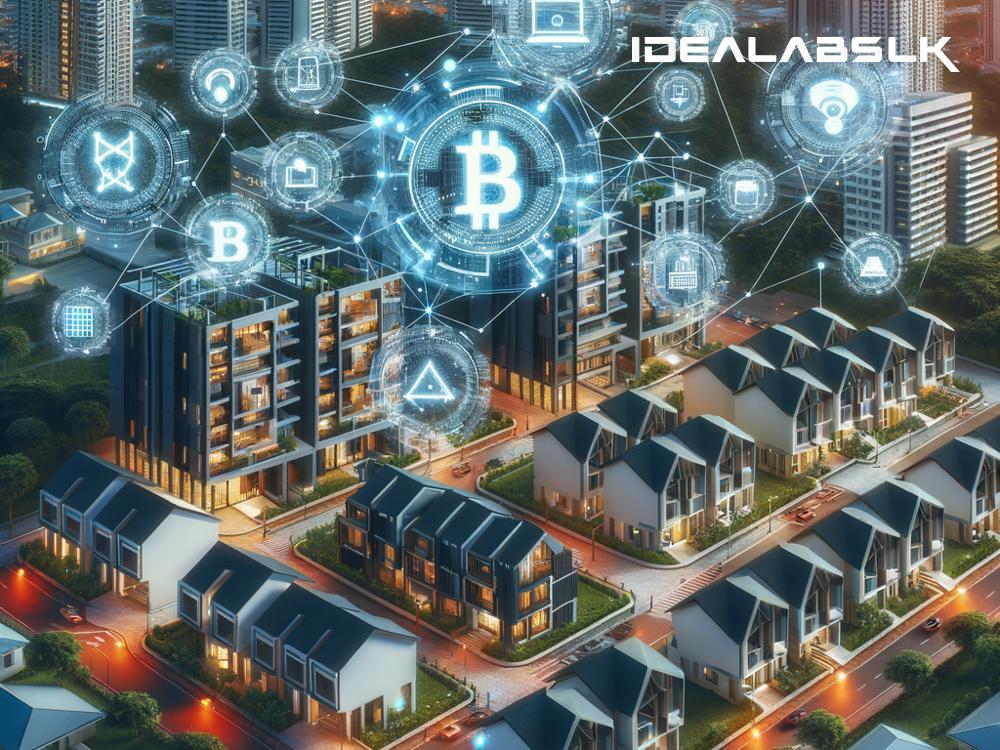Blockchain and Real Estate: How Smart Contracts Are Changing Property Management
In the world of bricks and mortar, the winds of change are blowing, and they're carrying with them the seeds of technological innovation. At the heart of this transformation lies the blockchain, a system that's most famous for powering cryptocurrencies like Bitcoin. But there's a lot more to blockchain than just digital money. One of the most exciting applications of this technology is in the real estate sector, particularly when it comes to property management. And the secret sauce? Smart contracts.
Before we dive into the whys and hows, let's break down some of these terms for those of us who aren't tech wizards.
What's Blockchain?
Imagine a digital ledger or a diary that's not kept in one single place but is spread out across numerous computers around the world. This ledger records transactions, and once something is written in it, it can't be changed or erased. That's the blockchain, a system designed for utmost security and transparency.
And Smart Contracts?
Smart contracts are like regular contracts, but instead of being printed on paper, they are written in code and live on the blockchain. They automatically enforce and execute the terms of a contract as soon as the conditions are met. No need for a middleman to step in; the contract does everything on its own.
The Intersection of Real Estate and Blockchain: A Match Made in Digital Heaven
Real estate, for all its worth, is often seen as a traditional sector, slow to embrace new technologies. However, with the blend of blockchain and smart contracts, this is rapidly changing. Here's how smart contracts are revolutionizing property management:
1. Speeding Up Transactions
Buying or leasing property involves a staggering amount of paperwork and bureaucracy. With smart contracts, these processes can be significantly accelerated. Since the contract automatically executes the transaction once the set conditions are met (like payment confirmation), what used to take days or weeks can now happen in minutes.
2. Reducing Costs
Since smart contracts eliminate the need for many intermediaries (like brokers, lawyers, and banks), the costs associated with their services are also cut down. This makes transactions cheaper for both buyers and sellers.
3. Increasing Trust and Transparency
Every transaction on a blockchain is recorded permanently and can be seen by anyone. This transparency reduces the possibility of fraud and increases trust among parties. Since smart contracts operate on the if-then principle and execute transactions only when agreed conditions are met, both parties can feel secure in the deal.
4. Simplifying Property Management
For landlords and property managers, smart contracts can automate a lot of the routine work. Rent collection, for example, can be set up through a smart contract that automatically transfers rent payments from the tenant's blockchain-based wallet to the landlord's on the due date. Similarly, maintenance requests can be managed more efficiently. When a tenant reports an issue, the contract can automatically notify the appropriate service provider and even release payment as soon as the repair is confirmed.
But It's Not All Sunshine and Roses
Like any new technology, blockchain and smart contracts in real estate come with their share of challenges. Regulatory hurdles, technical glitches, and the sheer novelty of the concept can be daunting for those not tech-savvy. Additionally, for broad adoption, all parties involved in real estate transactions would need to be on board with this new way of doing things, which could take time.
Wrapping Up
The role of blockchain and smart contracts in property management is still evolving, but the potential is enormous. They offer a more efficient, transparent, and secure way of conducting transactions and managing properties. While we're navigating the growing pains typical of any groundbreaking technology, the direction we're heading is clear. The future of real estate looks to be digital, decentralized, and democratized. And that's a future worth investing in.
As we continue to watch this space, one thing is certain: the intersection of technology and real estate will keep offering fascinating opportunities to make the way we buy, sell, lease, and manage properties more efficient and equitable for everyone involved.

